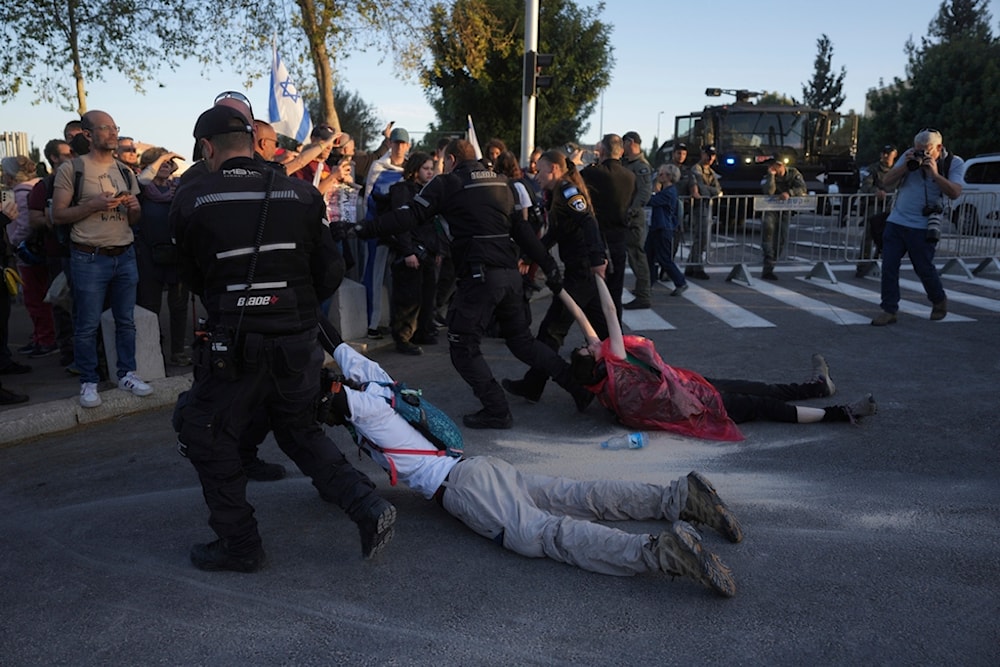20 MKs receive threatening letters, some with chemicals: Israeli media
Israeli police have instructed Knesset members not to open any letters they receive and have referred the matter for investigation.
-
 Israeli police drag away people protesting against Prime Minister Benjamin Netanyahu's government outside the Knesset, "Israel's" parliament in occupied al-Quds, on Monday, March 31, 2025 (AP)
Israeli police drag away people protesting against Prime Minister Benjamin Netanyahu's government outside the Knesset, "Israel's" parliament in occupied al-Quds, on Monday, March 31, 2025 (AP)
Twenty members of "Israel's" parliament, the Knesset, from the ruling coalition of Prime Minister Benjamin Netanyahu, received threatening letters, some of which contained a chemical substance, "Israel’s" public broadcaster reported.
According to the broadcaster, police have instructed Knesset members not to open any letters they receive and have referred the matter for investigation.
The Knesset recently witnessed a confrontation between dozens of family members of Israeli captives held in the Gaza Strip and several lawmakers during a meeting of the Finance Committee, which was convened to discuss the 2025 entity's budget.
The ruling coalition in "Israel" has been under scrutiny, especially after the Israeli military reneged on a ceasefire agreement and resumed its war on the Gaza Strip after two months of relative calm.
Netanyahu and his government insist that increased military pressure is the only way to force the Palestinian Resistance to hand over the captives, dead or alive, while the captives' families warn that the continuation of the war risks their return and have pressed the authorities, through frequent protests, to work on releasing the captives.
Earlier, nearly 1,000 veterans of the Israeli Air Force, including 60 active reservists, issued a public letter calling for an end to the fighting and the return of the captives held in Gaza.
A day after, reservists from Unit 8200 of the Israeli military's Intelligence Directorate joined the call — “even at the cost of immediately changing the course of the war.”
In the same context, over 150 former naval officers and several reservist doctors signed letters, calling for an immediate halt to the war in Gaza to facilitate the swift return of the captives.
The signatories argued that continuing the fighting only delays the captives' release, endangers soldiers, and harms civilians.
They also accused the Israeli government of prioritizing political and personal interests, and not security ones.
It is noteworthy that during the Israeli government’s initial effort to push through the judicial overhaul, which was suspended on October 7, 2023, hundreds of reservists, including dozens of pilots, refused to serve in protest.
They argued that the reforms undermined "Israel's" democracy and cast doubt on the legitimacy of military orders.
In late March, "Israel's" parliament passed a controversial law that grants elected officials increased authority in the judicial appointment process.
The vote reflects Netanyahu's firm commitment to advancing his contentious judicial reform plan, which ignited one of the largest protest movements in Israeli history in 2023 before being overshadowed by the war on Gaza.

 3 Min Read
3 Min Read










